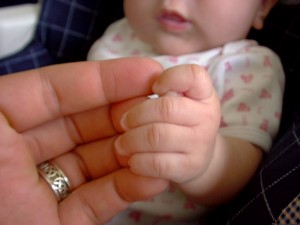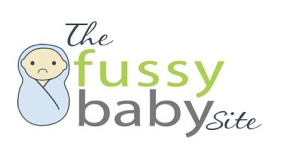- You are here:
- Home »
- Blog »
- For Dads »
- The Truth About Parenting
The Truth About Parenting
 Last month my post encouraged mothers (and fathers) to recognize when it was time to come out of the bunker mode, the take it one day at a time – we’ll get through this mode, and start to think once again about other important aspects of their lives.
Last month my post encouraged mothers (and fathers) to recognize when it was time to come out of the bunker mode, the take it one day at a time – we’ll get through this mode, and start to think once again about other important aspects of their lives.
This could include their relationships, their hobbies, their careers, and of course their dreams – not their dreams about being a mother or a father, but the other ones they had.
I also spoke about roles and our tendency to attach ourselves to them.
There are times in my life when the stars align and I start to grasp at certain truths that have partially or wholly eluded me until that moment.
This doesn’t happen often, but when it does, it’s a wonderful experience, and it’s often the culmination of a lot of steps and processing of experiences and reflections.
But here is where I’ve ended up, after two children, lots of advice, many fears, and a few good books – my truths about parenting are not profound or clever. They are simple and staring you right in the nose if you’re willing to look. Here they are:
You are not the roles you play. You should work hard never to identify yourself too seriously with a specific role.
We are more than a role or even the sum of the roles we play in life. Our roles give us purpose and grounding. But they can be an escape too. They can become addictive, even all-consuming. And ultimately they are transient.
When you identify yourself with a role, you are, ironically, less effective in that role. You do harm not only to yourself but to those you work with because you are no longer objective. You are too invested in that role.
A person, for example, who identifies completely with the role of mother will inevitably feel every perceived failure of their children as their own failure and will react accordingly. I’ve felt this myself when I’m too attached to the role of father. I wanted my kids to love me, to look up to me, to be the kids I had dreamed of. In other words, it was all about me and my role, not my children and their learning.
This leads me to my second truth.
The best way to parent is to trust yourself and to trust your kids. This is easier said than done, but ultimately not that difficult. Just remember that it’s not about you, it’s about them. And if you’re filtering all or your perceptions, your observations and ultimately your decisions through the filter of your own doubts and second guesses about your ability to parent, the culture your parents raised you in, and/or the myriad of contradicting parenting techniques and advice available to North American parents, you’ll often send a confusing message to your kids that’s not even coming from your expectations. Talk about confusing. There also won’t be any conviction behind your decisions.
Julie and I had many doubts and lacked conviction in a number of areas. We wish we had realized sooner so we could have instilled the habits we wanted and frustrated our kids less.
We needed to tune out the noise, our own and everyone else’s, sooner. The good news is that the kids are just fine so far. Children are resilient. They learn and adapt just like we do. As long as we love them and don’t undermine their fundamental sense of security, a few wrong decisions, even many wrong decisions, aren’t going to mess them up.
As a society of neurotic parents, we need to chill out.
Which brings me to my third truth.
Children are people and we should respect them enough to show them how to be happy, functioning, harmonious members or our families and society now, not when they grow up.
And the process should start immediately, whatever the child’s age.
We tend to underestimate our young children’s insight, intelligence, maturity and resilience. Therefore, we’re inconsistent with our teaching and our discipline. We confuse them with constantly changing expectations and then suggest that their inability to rise to the occasion (whatever the occasion might be) is a result of their childhood immaturity.
How unfair, since we never really believed that they could do it in the first place. They can, and there’s lots of evidence to show it.
So where am I going with this? And what does it have to do with your fussy baby? Everything.
And over the coming weeks and blog entries, I’m going to try to convince you of that. Each of the next three blog entries will expand on the “truths” I’ve summed up here.
In the end, you might decide I’ve got it all wrong. That’s fine. I’m not pretending to have all of the answers. These are truths for me, and if they resonate with you, then I feel as though I’ve contributed something to the parents who are going through the very tough time we went through not long ago.
At the very least, I hope it will be interesting reading.
 Sean Sutton lives in Ottawa, Canada with his wife and two children, Chloe and Emily. He spent much of this year on paternity leave following Emily’s birth and started a blog to document his experience.
Sean Sutton lives in Ottawa, Canada with his wife and two children, Chloe and Emily. He spent much of this year on paternity leave following Emily’s birth and started a blog to document his experience.
Other Posts You May Like
The Truth About Parenting
“Why are You So Tired?”: Here’s Why New Moms Are Walking Zombies
Dealing with Defiance in Your Spirited Toddler or Preschooler
An Open Letter To Partners of High Needs Babies’ Mothers
We Are Individuals – And We Happen to Parent
Rejoining the World
